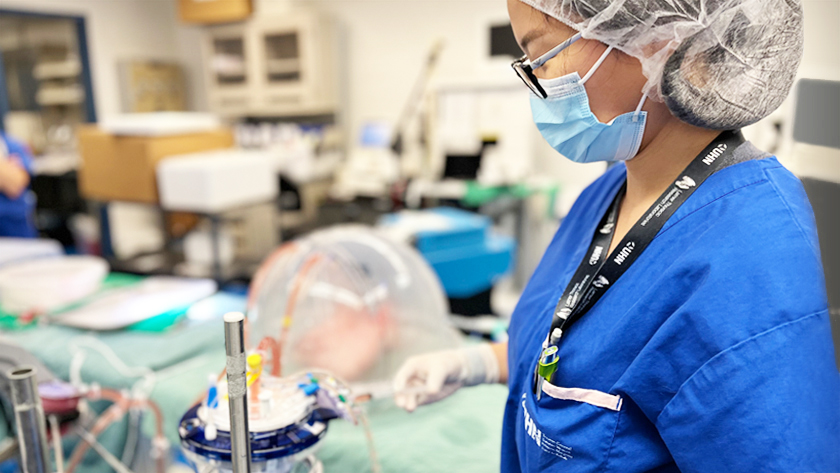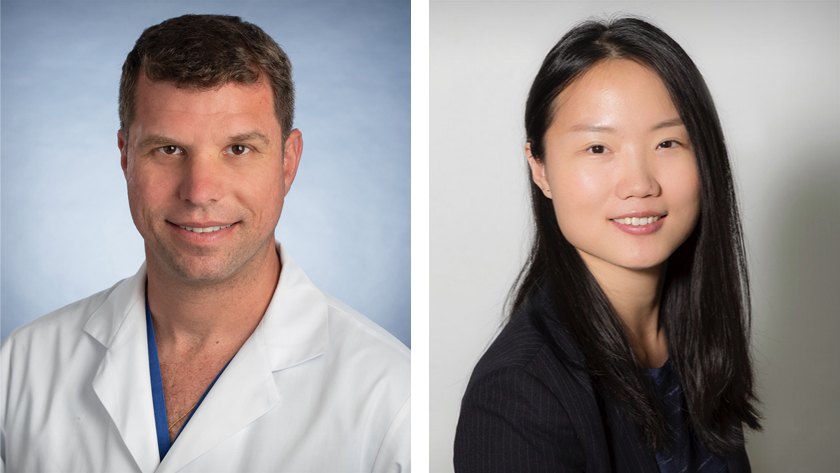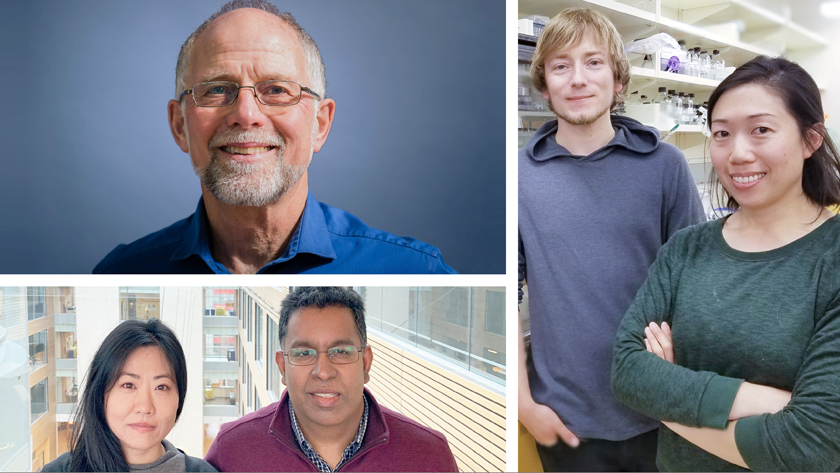
A study published in Science Translational Medicine has shown that it is possible to change the blood type of organs intended for transplantation. This finding is an important step towards creating universal organs that would be compatible with all patients.
For patients waiting for a donor organ with a specific blood type, this could fast track their transplant, drastically cut wait times and save lives.
The study was led by a team of researchers at the Toronto General Hospital Research Institute (TGHRI) and Ajmera Transplant Centre, within the Latner Thoracic Surgery Laboratory.
“With the current matching system, wait times can be considerably longer for patients who need a transplant depending on their blood type,” explains Dr. Marcelo Cypel, Surgical Director of the Ajmera Transplant Centre, TGHRI Senior Scientist and the senior author of the study.
Blood type is determined by the presence of antigens present in the blood and on the surface of blood vessels throughout the body. Individuals with type A blood have the A antigen; those with type B blood have the B antigen; those with AB blood have both antigens; and those with type O blood have none.
Antigens that are foreign to our bodies can trigger an immune response, which involves the production of antibodies. These antibodies then target and kill the foreign tissue. In order to create a universally accepted type O organ, antigens must be removed from type A, type B or type AB organs.
The research team accomplished this using the Ex Vivo Lung Perfusion (EVLP) system pioneered in Toronto. The EVLP system pumps nourishing fluids through donor organs, enabling them to be warmed to body temperature so that they can be repaired and treated before transplantation.
In the experiment, the researchers used human donor lungs that were deemed unsuitable for transplantation. Matching sets of lungs with type A antigens (i.e., from the same donor) were placed in the EVLP system. One lung was treated with a group of enzymes to clear the antigens from the organ, while the other lung remained untreated.
The team then tested the lungs by pumping type O blood (which has high levels of antibodies against the A antigen) through the EVLP system. The results demonstrated that the treated lungs were not negatively affected by the type O blood, while the untreated lungs showed signs of rejection.
This finding lays the foundation for future clinical studies. The research team is currently working on a proposal for these clinical trials, which they aim to start within the next 12 to 18 months.
The success of this study would not have been possible without interdisciplinary efforts across multiple organizations in Canada, including UHN, the University of Toronto, the University of British Columbia (UBC) and the University of Alberta. For example, the enzymes used in this study were first identified by UBC biochemist Dr. Stephen Withers and his team in 2018.
“By exchanging ideas across disciplines and across the country, we became one collaborative group working to tackle an important problem in organ transplantation,” says Dr. Aizhou Wang, a Scientific Associate in Dr. Cypel’s lab and first author of the study.
Source: UHN.ca
Wang A, Ribeiro RVP, Ali A, Brambate E, Abdelnour-Berchtold E, Michaelsen V, Zhang Y, Rahfeld P, Moon H, Gokhale H, Gazzalle A, Pal P, Liu M, Waddell TK, Cserti-Gazdewich C, Tinckam K, Kizhakkedathu JN, West L, Keshavjee S, Withers SG, Cypel M. Ex vivo enzymatic treatment converts blood type A donor lungs into universal blood type lungs. Sci. Transl. Med. 2022 Feb 16. doi:10.1126/scitranslmed.abm7190.
This work was supported by the UHN Ajmera Transplant Centre, the Di Poce Transplant Fund and by the generous donors of the UHN Foundation. The study was also funded by the Collaborative Health Research Project fund from the Canadian Institutes of Health Research, the Natural Sciences and Engineering Research Council of Canada and the Toronto General Hospital Research Institute. Dr. Marcelo Cypel holds a Tier 2 Canada Research Chair in Lung Transplantation from the University of Toronto.
Dr. Cypel is a Professor of Surgery at the University of Toronto; he is also founder and shareholder of Traferox Technologies Inc. and a consultant for Lung Bioengineering. Dr. Withers is a co-founder and shareholder of ABOzymes Biomedical Inc.

(L-R) Dr. Marcelo Cypel, senior author of the study; and Dr. Aizhou Wang, first author of the study.

Members of the UBC laboratory of Dr. Stephen Withers, who developed the enzyme cocktail. Pictured (clockwise from top left): Dr. Withers, Peter Rahfeld, Lyann Sim, Jay Kizhakkedathu and Haisle Moon.




